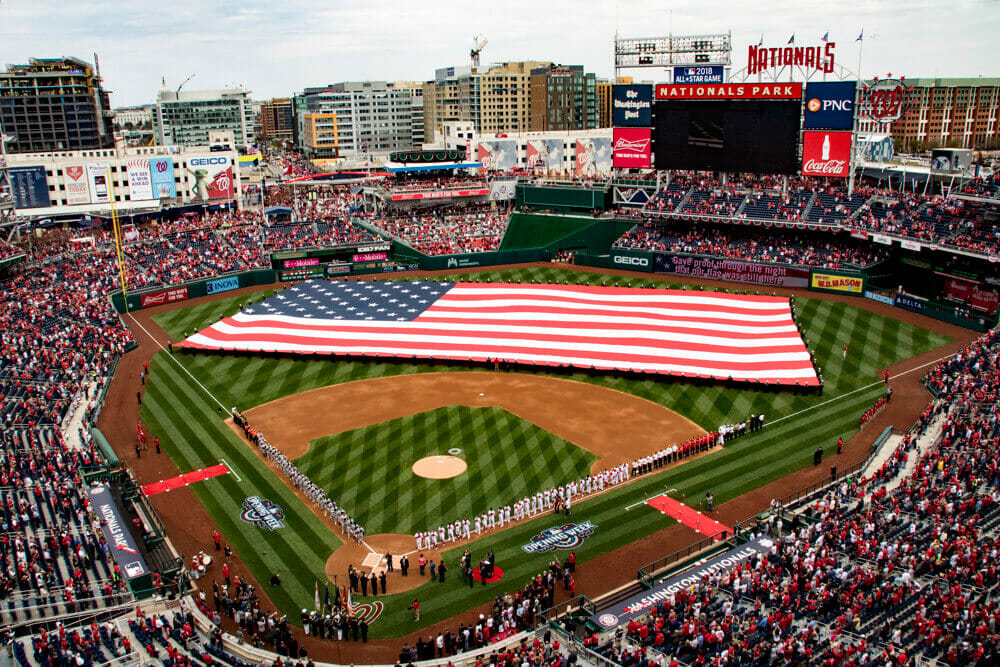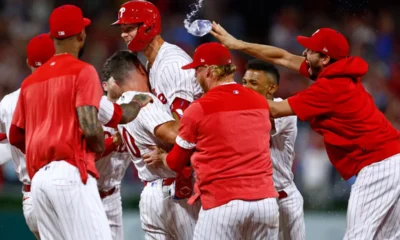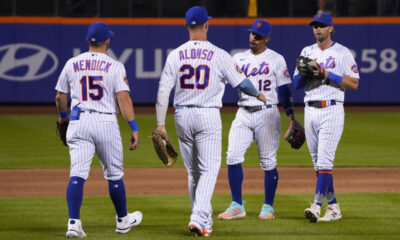MLB has implemented new rules which allows players with a positive COVID-19 test to come back to the game. However, this may sound kind of risky because the players with the virus could eventually infect the others. New research has found dealing with positive cases of coronavirus can be different now, and there may be less of a risk than previously thought.
MLB Rules Bypass COVID-19 Health Measures
The baseball league will permit players to return despite a positive diagnosis. Science is learning more and more about coronavirus on a daily basis, and the latest update can be viewed as positive news within the league.
As a matter of fact, the new MLB rules will allow players to play again even after getting a positive diagnosis of COVID-19 after a specific period of time. It seems that, according to some of the latest findings, after a certain amount of time, the person infected with the coronavirus does not pose a threat to other players or staffers with whom he might come in contact.

100% Bonus up to $1,000 + $25 Token
T&C APPLY | NJ, MI ONLY Join Now
100% Bonus up to $1,000 + $25 Token
T&C APPLY | PA ONLY Join Now
$1000 Risk Free Bet
T&C APPLY | NJ, PA, IN, CO, NJ, MI, IA, LA, MS, OH ONLY Join NowJon Heyman posted a tweet about this, saying, “New MLB Covid-19 rules: players who test positive can apply to return to play in 10 days even if they continue to test positive (but still need MLB joint committee OK) and r very likely to be allowed back after 14 days even w/continuing positives. Reasoning: contagiousness dissipates.” In this regard, Heyman is saying that, after the ten days, a player who is infected won’t infect others as the danger of transmission reportedly disappears.
The report by Heyman represents an important discovery in how MLB and other sports leagues can deal with positive cases of COVID-19, so could lead to rules changes in other sports and is potentially really good news for all the sports leagues. If this discovery goes well and yields good results, the threats to the leagues will be less and the number of players being left out will be inferior to those from before.
The COVID-19 Threat Remains
Undoubtedly, COVID-19 is a novel virus and sports leagues are working to be more careful in order to avoid any more outbreaks like the one that affected the Miami Marlins and the St. Louis Cardinals. Learning more about the virus and letting players return if they have tested positive at a certain time won’t infect others, which means that asymptomatic players can come back even faster than what was expected at the beginning of the pandemic.
It seems that the new policy from the league is a good sign and it sounds promising for the season; however, it must be addressed with caution. As far as we know, a positive test doesn’t necessarily guarantee a person is actively sick or showing symptoms. Nevertheless, the idea is that leagues don’t push players to be back too soon because the result might result in one or more players dealing with long-term effects of the virus due to impatience.
Heyman posted another tweet about the subject, stating, “While all 18 Marlins who tested positive were cleared to return. And many had two negative tests, in some cases they were approved to return due to time elapsed and other factors considered by the MLB joint committee. In other words, not all 18 had 2 negative tests.” This is a decision that must be considered with deep care. The baseball league can’t take the risk of having another scenario of unwanted outbreaks since this would be catastrophic to baseball and its fans.

100% Bonus up to $1,000 + $25 Token
T&C APPLY | NJ, MI ONLY Join Now
100% Bonus up to $1,000 + $25 Token
T&C APPLY | PA ONLY Join Now
$1000 Risk Free Bet
T&C APPLY | NJ, PA, IN, CO, NJ, MI, IA, LA, MS, OH ONLY Join NowPreviously under MLB rules, two consecutive negative COVID-19 tests were required before a player could be brought back to a roster. While there needs to be more data to be able to reach a definitive conclusion, this is definitely a step in the right direction. That is, unless test results and findings have been completely misread, in which case we might be in for another massive COVID-19 debacle.














